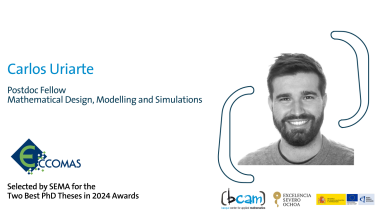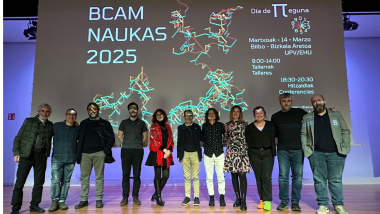BCAM's MTB (Mathematical and Theoretical Biology) Group visits several prestigious institutions in Asia
- They have visited Aoyama Gakuin University, Tokyo, Japan; Hokkaido University, Sapporo l, Japan; Konkuk University, Seoul, Korea(where they organised a symposium during the KSMB-SMB conference (over 700 participants); Universitas Indonesia, besides the research visit, the group attended as Plenary speakers during the SYMOMATH 2024; and Universitas Udayana, Denpasar, Indonesia, where they are currently visiting the math department till July 27.
The MTB (Mathematical and Theoretical Biology) Group at the Basque Center for Applied Mathematics (BCAM) is currently on a research visit to several prestigious institutions in Asia.
They have visited Aoyama Gakuin University in Tokyo, Japan, and Hokkaido University in Sapporo, Japan. In Seoul, Korea, they organized a symposium during the KSMB-SMB conference at Konkuk University, which had over 700 participants.
The group also attended SYMOMATH 2024 at Universitas Indonesia as plenary speakers. Currently, they are visiting the math department at Universitas Udayana in Denpasar, Indonesia, until July 27.
Their collaborative work focuses on vector-borne diseases, which are endemic and prevalent in these regions. They aim to develop mathematical models to better understand and mitigate the spread of these diseases. This effort will support public health preparedness in currently non-endemic countries where the mosquito vector is already established and an increasing number of viremic imported cases are reported each year — creating the perfect conditions for disease outbreaks.
With a highly interdisciplinary team, the MTB group's research addresses significant mathematical problems and fundamental questions in medicine and biology. Using methods from nonlinear dynamics, bifurcation analysis, dynamical systems theory, stochastic processes and biostatistics, our work focuses on the development of theoretical methods, modeling and simulation techniques and its practical applications in life sciences, covering topics on population dynamics, eco-epidemiology, public health epidemiology, physiological and medical systems, molecular and antigenic evolution and evolutionary dynamics, as well as methodological topics in natural sciences and mathematics.
Related news
Zentroari buruz
ESGI 188 (European Study Group with Industry) Bilbon izango da 2025eko maiatzaren 26tik 30era
BCAM pertsonak




